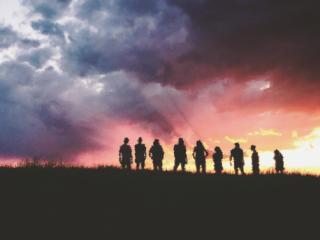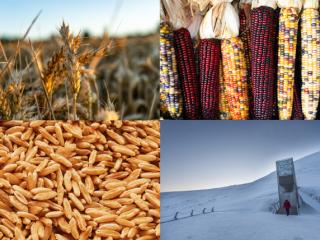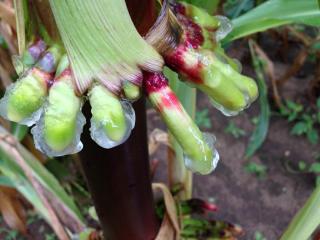Fear about the future of the planet keeping you up at night? Aerospace engineer Robert Zubrin has a solution: it’s time to settle Mars. More
Science and Technology
Claire Peaslee is a naturalist who lives in Point Reyes, California, a place decimated by recent forest fires that sits literally on top of the San Andreas Fault. Yet she finds hope there through pilgrimage.More
After the excesses of the 1960s — and an ensuing moral panic — psychedelic research was outlawed by the United States government for decades. But today, the research is blossoming as a promising treatment for depression and anxiety.More
For centuries, people have considered mathematics the purest form of knowledge — and our best bet for deciphering the universe's hidden order. Steve spoke with two people who love math: physicist James Gates and science writer Margaret Wertheim.More
Exercise is good for you. And while that might seem pretty obvious, Dr. Claudia Reardon says that it goes deeper than that — specific exercises can actually act as effective treatments for specific mental illnesses.More
Lulu Miller's book “Why Fish Don’t Exist” — which examines ichthyologist David Starr Jordan — is a meditation on the shadow side of scientific classification, and the dangers of trying too hard to impose order on chaos.More
Putting aside the question of whether there's any validity to it, the ancient science of astrology has a lot in common with contemporary data science. In fact, data scientist Alexander Boxer calls astrology humanity’s very first set of algorithms.More
Eels are philosophically and scientifically slippery — they're still some of the most mysterious creatures on the planet. Journalist Patrik Svensson has been obsessed with them, and wound up writing a surprise bestseller — “The Book of Eels.”More
Wade Davis has been called the Indiana Jones of anthropology. He says the aboriginal people of Australia have a fundamentally different way of seeing the world than we do in modern society.More
Alexander Rose tells Anne Strainchamps about the Clock of the Long Now — an all mechanical clock being constructed in the high desert of Western Texas designed to run for ten thousand years.More
Mathematical cosmologist Brian Swimme talks to Steve Paulson about the nature of time and the human obsession with clock time.More
He’s one of the most frenetically productive, wired guys on the planet, but digital media theorist Douglas Rushkoff is backing away from the clock.More
Photographer Rachel Sussman has documented 30 of the oldest living things in the world. Beautiful and romantic, her photos document both the adaptation and fragility inherent to surviving for tens of thousands of years. More
Social scientists are finding that generating happiness in your life may have less to do with an arbitrary number — like your bank account or how many Instagram followers you have — and more to do with how well you connect with the people around you.More
Psychologist Laurie Santos created a college course to teach students how to use what scientific research has discovered about what makes us happy and why. It became the most popular class in the 300 year history of Yale.More
Most of us get our food from the grocery store, not the fields where it grows. But if you really want to understand where our food comes from — and the potential threats to the food supply — you have to think about seeds.More
There is an unusual, giant corn in southern Mexico that gets its own nitrogen from the air — no manufacturing required.More


















